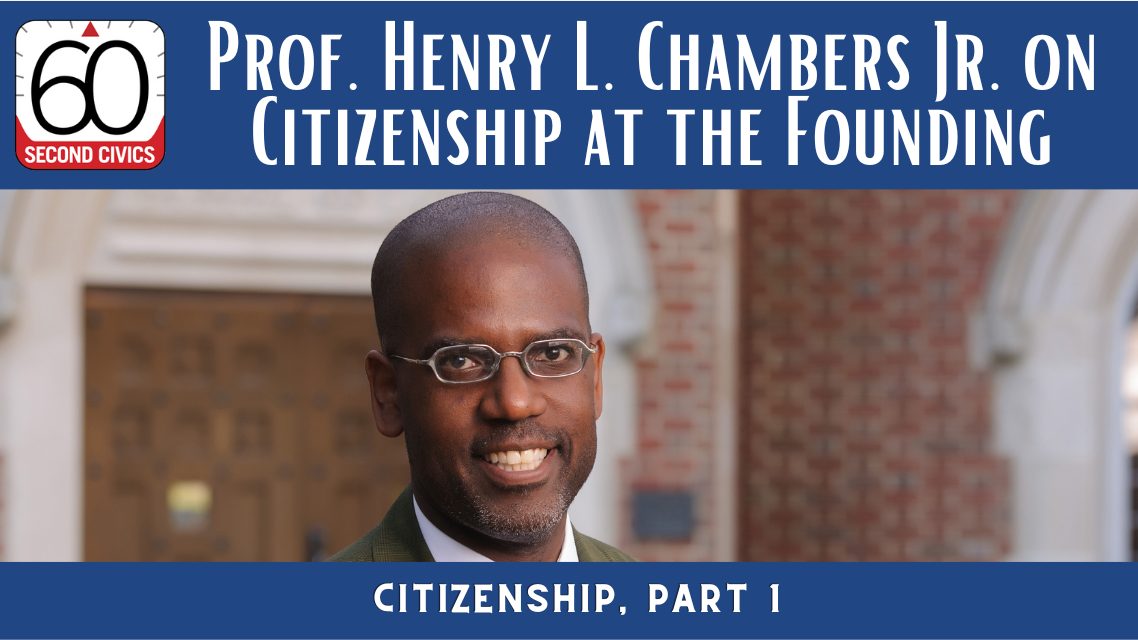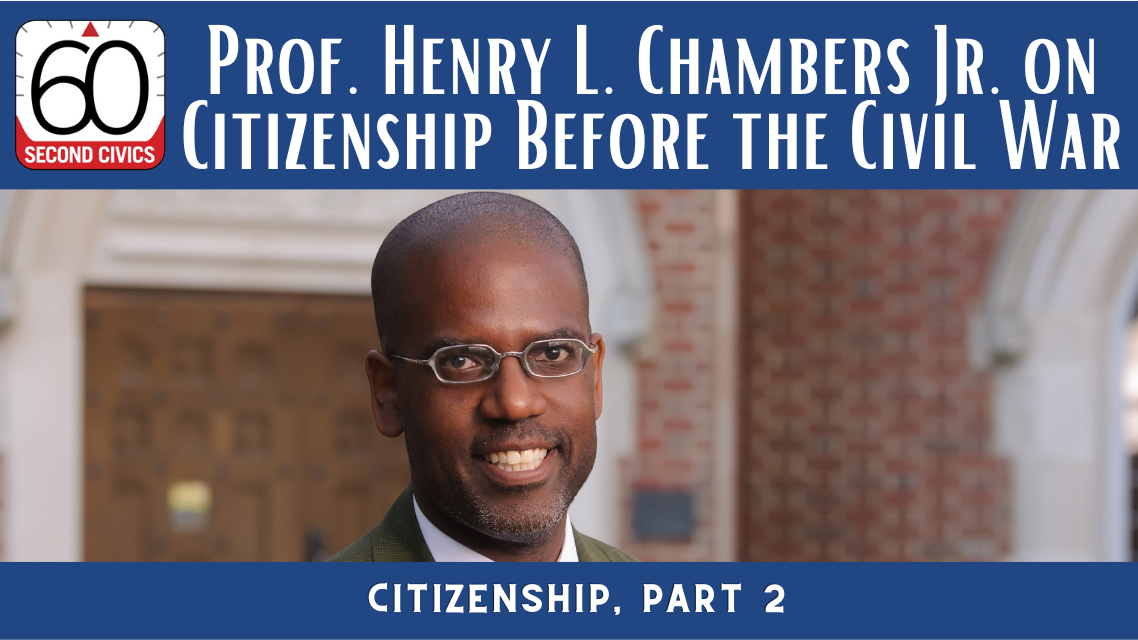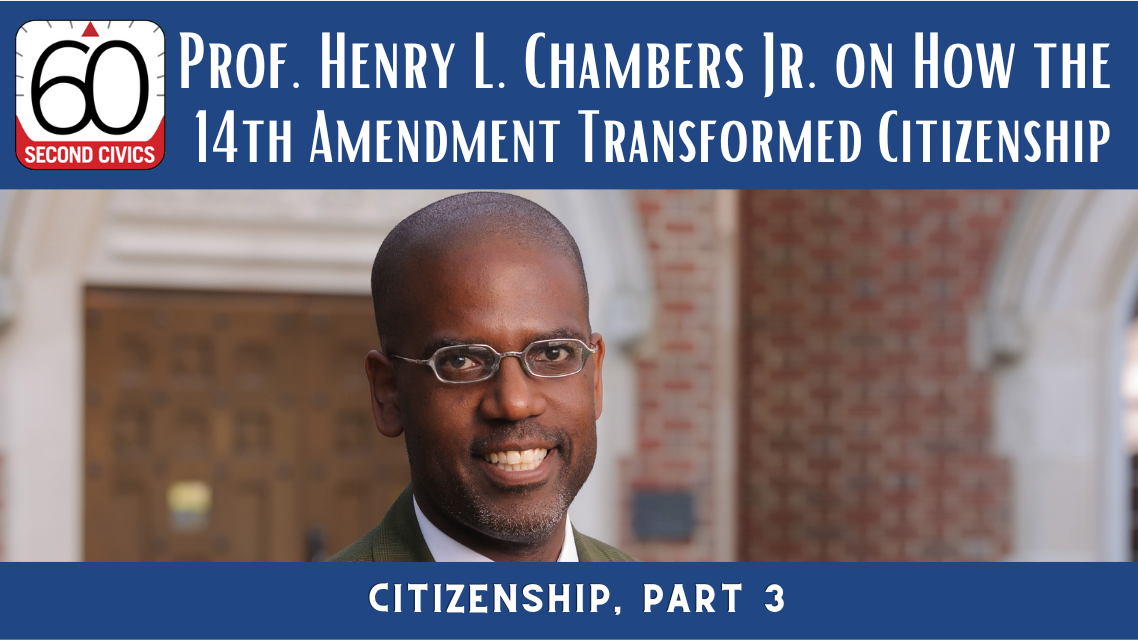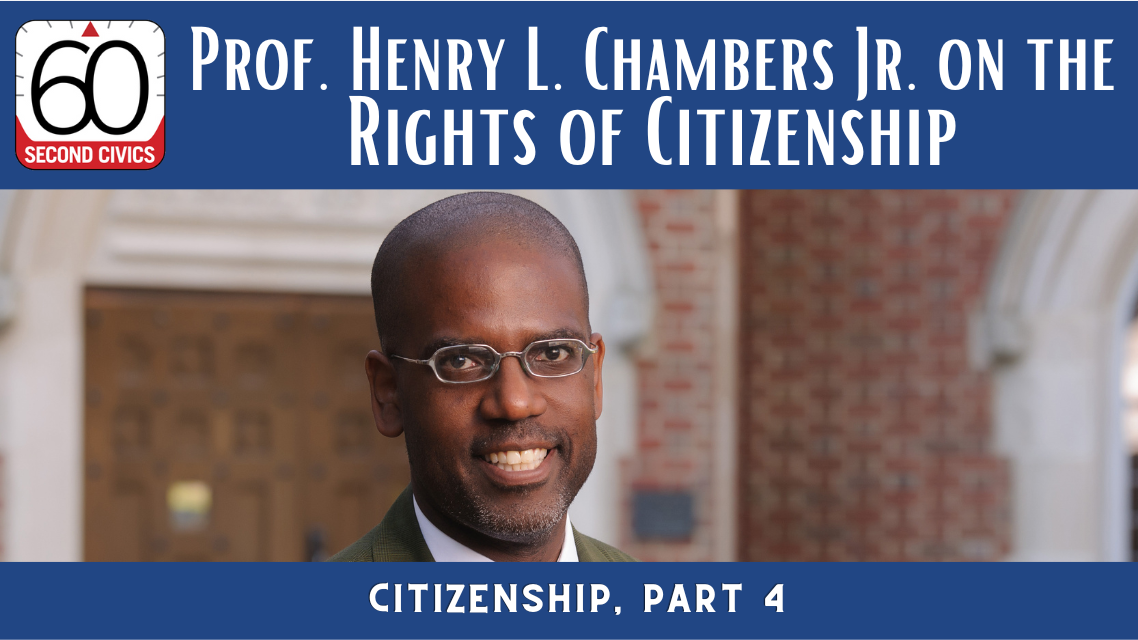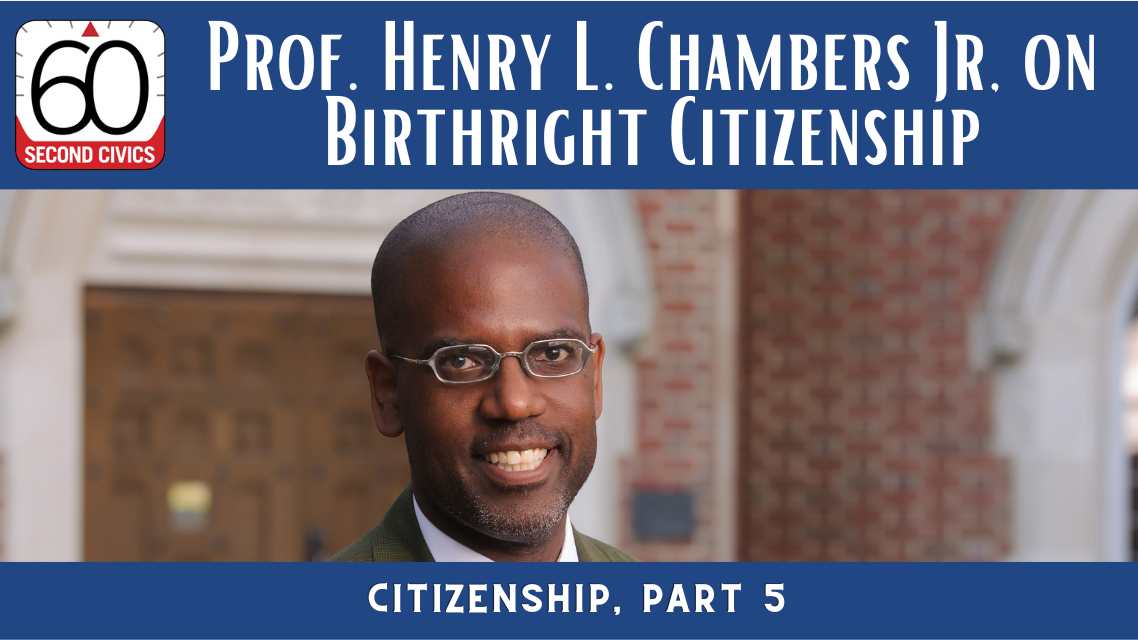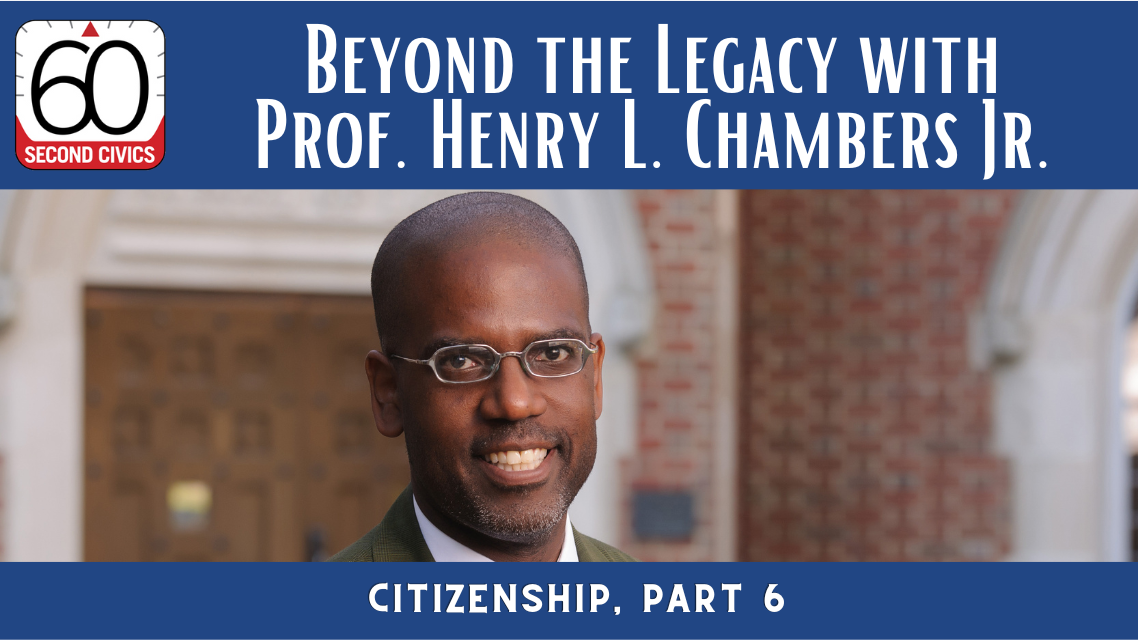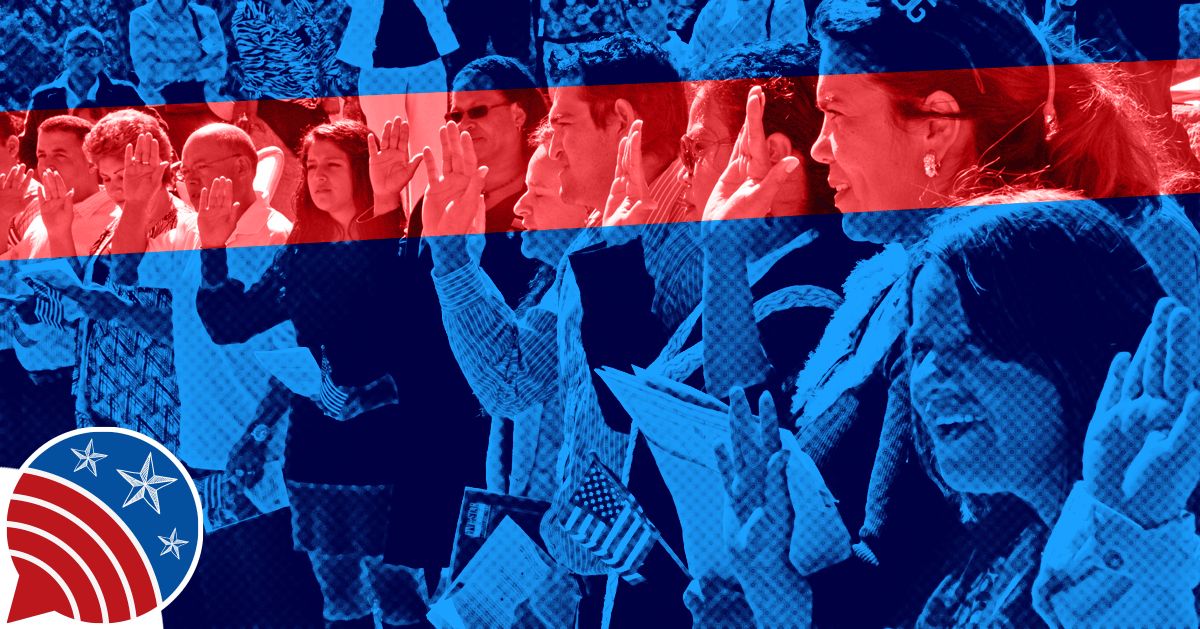
Citizenship
The concept of American citizenship has evolved since America’s founding. Connected to the right to vote, the experience of citizenship has been different for many in America. Explore events, texts, and decisions such as the Chinese Exclusion Act of 1882 to consider the evolution of citizenship in America and its dichotomy of inclusion and exclusion. Prepare to engage in discourse on what makes an American citizen.
Podcasts & Videos
How has the concept of American citizenship changed since the founding period, and how might it change in the future? Join Professor Henry L. Chambers Jr. of the University of Richmond School of Law in this exploration of the history of citizenship in the United States and what American citizenship means today.
Each episode below contains a video, quiz, and script. In addition to use in this civil discourse module, 60-Second Civics makes a great warmup activity for your classroom any day!
Want to go deeper? Search political parties or any other relevant topic for use in your instruction from the full library of 60-Second Civics podcasts.
What was citizenship at the founding of our country? Professor Henry L. Chambers Jr. of the University of Richmond School of Law explains how citizenship was initially decided by each individual state, and how this presented a challenge as the United States gained independence and evolved into a more mature republic.
What was citizenship in America before the Civil War? Professor Henry L. Chambers Jr. of the University of Richmond School of Law explains the uncertain status of citizenship before the Civil War, particularly for Black Americans.
How did the 14th Amendment transform citizenship in America? Professor Henry L. Chambers Jr. of the University of Richmond School of Law explains the impact of the 14th Amendment on citizenship and its particular effect on formerly enslaved Americans who were born in the United States.
What types of rights are associated with citizenship? Professor Henry L. Chambers Jr. of the University of Richmond School of Law explains some useful ways to think about citizenship, including how the rights of citizens have changed over the years.
What is birthright citizenship and how might American citizenship change in the future? Professor Henry L. Chambers Jr. of the University of Richmond School of Law explains the concept of birthright citizenship and discusses way that the concept of citizenship might change over time.
How has citizenship in the United States evolved and what is its future? Professor Henry L. Chambers Jr. of the University of Richmond School of Law explains how notions of American citizenship have changed from the founding period today and offers some ideas about how American citizenship might change in the future.
We hope you've enjoyed this series from 60-Second Civics. Check out the playlist below for easy viewing of the entire series, with each episode playing back-to-back.



